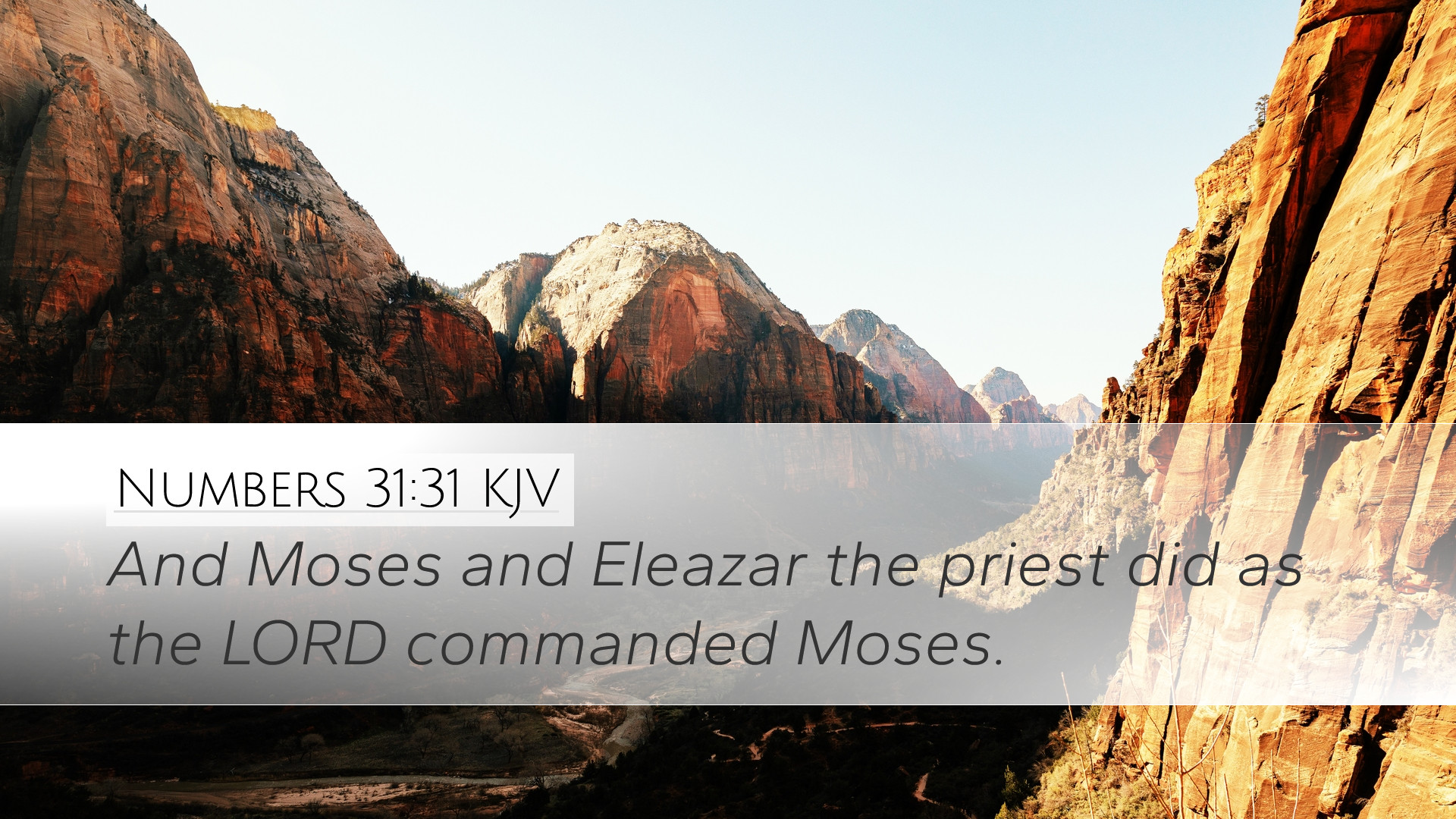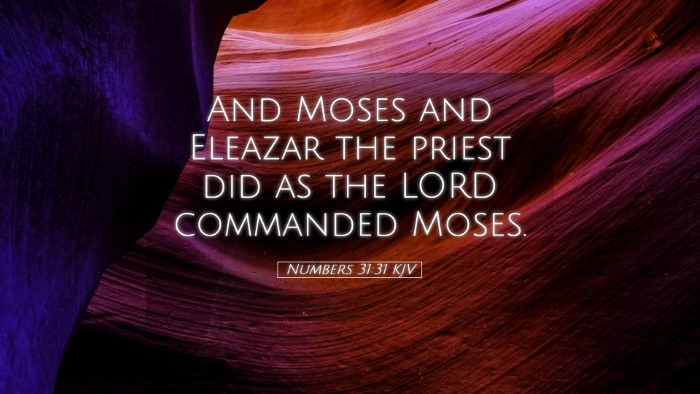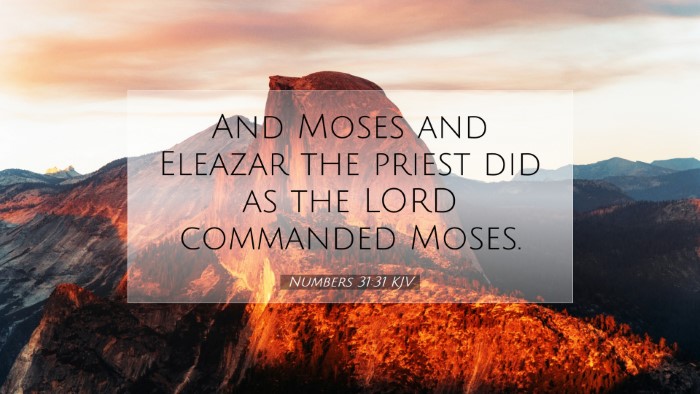Commentary on Numbers 31:31
Verse: "And Moses said unto them, If the captains of the thousands of the host have taken the count of the men of war which have been killed, and those who were taken captives, they are to do that which the Lord has commanded." (Numbers 31:31)
Introduction
The passage of Numbers 31:31 is set in a pivotal moment in Israel's history where the Israelites engage in warfare against the Midianites. This verse serves as a transitional declaration that encapsulates obedience to divine command and the practical application of God's order amidst the context of military operations. Its intricate layers offer rich insights for pastors, students, and scholars.
Contextual Background
The backdrop for this declaration is a response to the Lord’s directive that the Israelites must take vengeance on the Midianites for leading them into sin. The chapter outlines not only the military strategy but also the divine concern for holiness and moral integrity in the aftermath of battle. The complexity of warfare, ethics, and divine justice converges in this moment.
Commentary Insights
1. Obedience to Divine Command
Matthew Henry notes that Moses’ charge reflects the profound responsibility leaders bear in ensuring that the actions of their subordinates align with God’s expectations. The military leaders, tasked with counting the slain as well as the captives, illustrate the importance of accounting for all aspects of the warfare.
2. Reflection on Accountability
Albert Barnes emphasizes the notion of accountability in military service. Leaders must ensure that every action taken is justifiable and aligns with God’s orders. This establishes a principle that can be extended to all areas of leadership in the church, ensuring that all undertakings reflect righteousness and accountability before God.
3. God’s Sovereignty and Justice
Adam Clarke emphasizes the sovereignty of God in directing the affairs of Israel, particularly in their military engagements. The need for a count serves to recognize God’s role in determining outcomes in warfare, reinforcing the belief that victory stems from divine will rather than mere human effort.
4. Ethical Warfare
The passage raises significant questions regarding the ethics of warfare. Matthew Henry points out that the Israelites were not acting from a heart of vengeance alone but were executing judgment as commanded by God. This draws a distinction between human conflict fueled by selfish desire and divinely sanctioned actions that seek to uphold justice.
5. Preparing for Spiritual Warfare
The broader implication of this verse can also apply to the understanding of spiritual warfare. All leaders within the church must be vigilant, accounting for both the numbers and the spiritual ramifications of their actions. This is echoed by Albert Barnes, who encourages bolstering spiritual fortitude in followers, reminding them of the spiritual battles they face daily.
Theological Implications
This passage extends beyond a historical event to present timeless truths relevant to Christian theology and ethics.
- The Authority of Scripture: Leaders must continually seek God’s guidance through prayer and Scripture, adhering to the principles laid out.
- Moral Responsibility: In all actions, particularly those with greater consequence such as leadership decision-making, an unwavering commitment to righteousness must persist.
- The Holiness of God: Recognizing the seriousness with which God views sin and the repercussions serves as a reminder of His justice and mercy.
- Leadership Accountability: Leaders are directly accountable for the decisions made within their realms of influence, thereby reinforcing the importance of discernment and prayer.
Practical Applications
For pastors, students, theologians, and scholars, Numbers 31:31 invites rich practical applications:
- Critical Leadership: Assessing the spiritual implications of decisions made in leadership, especially those concerning the congregation's direction.
- Fostering Accountability: Raising a standard of behavior within church leaders that reflects adherence to Scripture in decision-making processes.
- Engagement with Divine Command: Encouragement for prayerful consideration of actions and decisions undertaken, mirroring the response of Moses and the leaders of Israel.
- Educational Frameworks: Teaching congregants about spiritual battles, ensuring they are equipped not only to face physical challenges but the spiritual ones that may ensue.
Conclusion
In summary, Numbers 31:31 serves as a profound reminder of the critical relationship between divine command and human action. By rooting their leadership in the principles presented through this text, pastors and leaders can strive to align their decisions with God’s holiness, particularly in contentious and morally challenging circumstances. Each leader must strive for a heart of obedience and a commitment to righteousness that echoes through their actions, ultimately leading to a greater glorification of God’s name in both the physical and spiritual realms.


